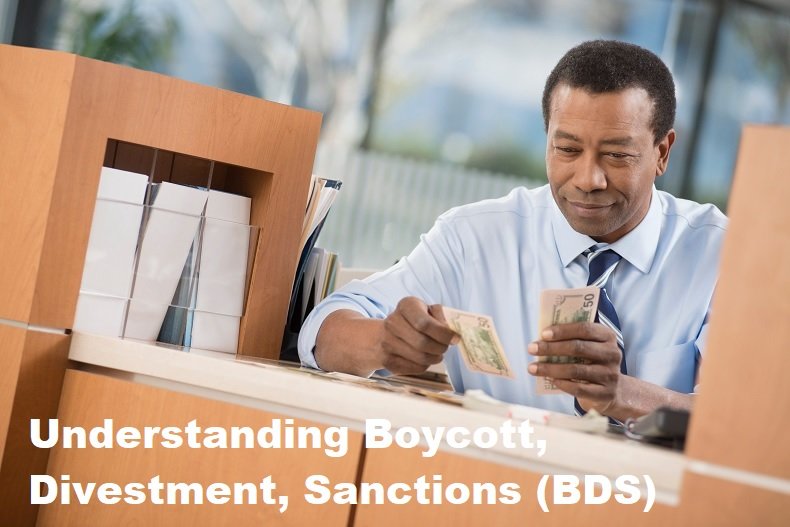Boycott is an action taken by an individual or group to avoid or stop supporting an entity, such as a country, company, or product, as a protest against policies or actions that are considered unfair or unethical. Boycott is usually done by not buying products or using services originating from the target of the protest. The purpose of boycott is to express disagreement and put pressure on the target party to change policies, actions, or practices that are considered detrimental.
Divestment is the process of separating oneself from investments involving a company, organization, or country that is the target of a protest. Divestment is often carried out by selling shares or assets related to the party that is the target of the protest. In the context of economic pressure, divestment aims to reduce the income and economic power of the party targeted by the protest and create public awareness about the issue being fought for.
Sanctions are repressive measures carried out by a group of countries or international organizations against certain countries, organizations or individuals in response to certain actions (such as human rights violations, military aggression, or the spread of terrorism) which they consider to be inconsistent with international norms. Sanctions, in this case, could take the form of trade restrictions, termination of economic assistance, or other actions that harm the targets of the protest financially and politically.
Boycott, Divestment, and Sanctions (BDS) is a combination of the three economic pressure tactics above which are used together to create greater pressure on the party targeted by the protest. In some cases, BDS tactics are used as an effort to educate the public and influence global opinion around the policies and practices that form the basis of the struggle. These tactics complement each other by increasing the economic and political impact of customer boycotts, investment cuts, and sanctions, ultimately impacting the reputation and influence of those targeted by the protest. Therefore, the BDS movement is also a tool for shaping public opinion and highlighting controversial policies or actions. Furthermore, the success of the BDS movement usually depends on how widespread support it receives, both from the general public and from governments and international organizations. Through this approach, it is hoped that the targets of the protest will feel called to change their policies or practices in order to maintain their reputation and establish better relations or politics with parties involved in the BDS movement.
Boycott Benefits, Divestment, Sanctions
One of the main benefits of this movement is encouraging policy change. By putting economic pressure on those targeted by BDS, this movement can open channels for dialogue and negotiation to produce policy changes that are fairer and support human values. Apart from this, the BDS movement also plays an important role in creating awareness about certain issues among the wider society. Through campaigns and solidarity actions regarding issues that are the focus of BDS, information that was previously hidden or not conveyed properly can be discovered by the public. This encourages reflection and evaluation of practices that are considered detrimental to certain parties or violate human rights norms and principles.
Influencing public opinion is also one of the important benefits gained from implementing BDS. The strength of this movement comes from a broad base of public support, both individual and organizational. In the process, public opinion will become more critical of the problems faced by those targeted by BDS. Over time, public opinion can influence government policies and also influence the steps taken by private companies in establishing business relationships. The success of the BDS movement can be seen in several cases where companies and institutions have successfully divested or ended partnerships with parties targeted by BDS. This shows that this movement is able to have a real impact in changing the behavior and policies of entities that feel pressure from actions such as boycotts, divestment and sanctions. Thus, the BDS movement has become an effective instrument for creating social and political change that is fairer and supports human values.
Effectiveness of Boycott, Divestment, Sanctions
The effectiveness of BDS is highly dependent on several factors, such as public and political support, media reach and global awareness of the issue. These factors are important in shaping public opinion and driving the policy changes or disinvestment desired by the movement. One example of the success of the BDS movement was when international companies, such as Orange and Veolia, decided to withdraw from projects in Israel that involved the occupation of Palestinian territories. This victory shows that the economic and reputational pressure exerted by the BDS movement has succeeded in bringing human rights to the fore as a priority in corporate actions. However, there are also cases where BDS is unable to produce a significant impact, such as efforts to attract investment in Israel’s defense industry sector.
Not all BDS movement outcomes can be predicted easily. Its effectiveness depends on the context and the extent to which countries or companies are willing to support the movement. On the one hand, there are European countries that have brought about changes in their policies regarding the illegal occupation by Israel. On the other hand, the United States has taken steps contrary to the BDS movement by signing an economic cooperation agreement with Israel. Overall, the effectiveness of the Boycott, Divestment, Sanctions (BDS) movement is highly dependent on factors such as public support, political willingness and media response to the issue of human rights oppression. There are cases where this movement has succeeded in achieving its goals in producing policy changes or attracting investment, but there are also cases where the resulting impact has not been significant. The more support there is for this movement from various elements of society, the greater the chance of success for BDS in producing a real impact on the lives of the Palestinian people.
Controversy and Criticism of BDS
Controversy and criticism of BDS has always been a hot debate, especially in political and economic contexts. Some parties argue that this movement is effective in achieving political and economic goals, such as pressuring the Israeli government to end its colonization of Palestinian territories and stop human rights violations. However, on the other hand, there is a view that BDS is ineffective because it actually has a negative impact on Palestinian society and causes more strife than conflict resolution. The effectiveness of the BDS movement is often questioned by its critics, who believe that this strategy does not improve Palestine’s position. They argue that a more constructive approach to diplomacy and dialogue would be more successful than a campaign of boycotts and economic restrictions. BDS supporters point to the success of a similar movement in ending apartheid in South Africa as evidence that its methods are having a positive impact.
The relevance of BDS as a diplomatic tool is also a subject of controversy. Many consider the movement to be a form of non-violent protest, while critics see its strategy as discriminatory and detrimental to the Palestinian people themselves. For example, investment restrictions in the Palestinian territories could reduce employment and infrastructure development. Regarding the ethics and legal challenges of the BDS movement, there is some debate regarding the right to freedom of expression versus allegations of antisemitism. Some countries have taken steps to criminalize support for BDS, arguing that it violates anti-discrimination and attacks cultural and religious identity. In contrast, its supporters argue that criticism of a country’s government policies is not the same as discrimination against a nation or religion.









